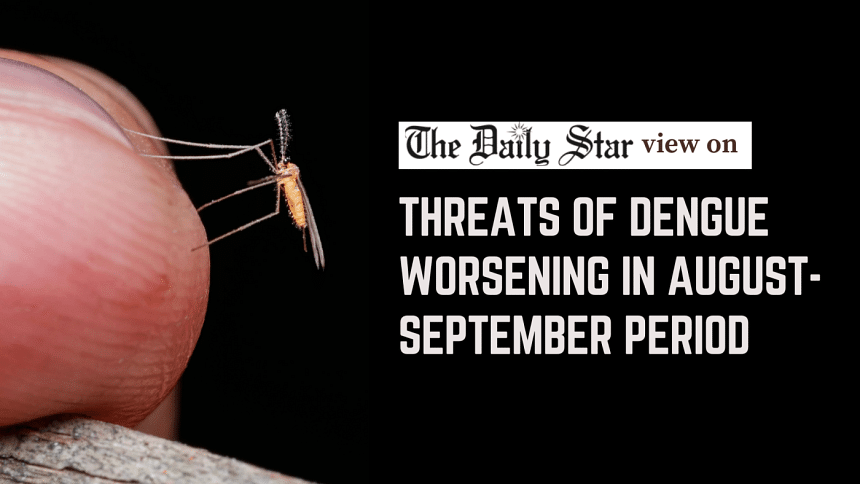Why can’t we contain dengue?

With every passing day, the dengue situation is getting worse in the country. As of July 23, the total number of cases rose to 18,000 while 65 people died from the disease this year. Public health experts have warned that the situation may become severe in the August-September period due to the ongoing rainfall patterns, which are creating ideal conditions for Aedes mosquitoes' breeding. Although the two city authorities of Dhaka claim that they have undertaken year-round mosquito eradication efforts as well as several other initiatives, experts have criticised them as being inadequate. The question is: why do we continue to fail in controlling dengue? Have the relevant authorities taken the right approach to tackle this persistent crisis?
Entomologists have repeatedly said that our approach is flawed as combining mosquito control with dengue control is not the way to go. If we try to control dengue by targeting Culex mosquitoes, it will never work. Culex mosquitoes breed in drains, sewers, ditches, and stagnant dirty water, and those who spray insecticides focus on these areas. But the breeding rate of Aedes mosquitoes in such places is extremely low. Aedes mosquitoes tend to breed in residential areas, office premises, and spots where water collects, such as construction sites and building basements. Unfortunately, mosquito control teams often struggle to access these locations, leaving many breeding zones untouched. To tackle this, health and city authorities must make more targeted interventions. Experts have also suggested prioritising larviciding and elimination of breeding sources over widespread fogging, since fogging has largely proven ineffective.
They have also suggested that the two city corporations should undertake door-to-door operations in areas with high dengue incidence. This should involve inspecting every household to identify and eliminate Aedes breeding sites, applying larvicide where necessary. If Aedes larvae are found in a residence on the first and second inspections, a warning should be issued; however, from the third occurrence onwards, penalties must be enforced. Active participation from local residents is essential to succeed in these efforts.
We also need a comprehensive, year-round strategy including eliminating breeding sources, destroying larvae, managing hotspot areas, and ensuring community involvement at every stage of the effort. As dengue has spread to all the districts this year, special attention must be given to regions outside Dhaka, not only to contain the outbreak but also to ensure that health complexes and hospitals are adequately equipped to treat patients. The continuing loss of lives from this disease is simply unacceptable.


 For all latest news, follow The Daily Star's Google News channel.
For all latest news, follow The Daily Star's Google News channel. 










Comments